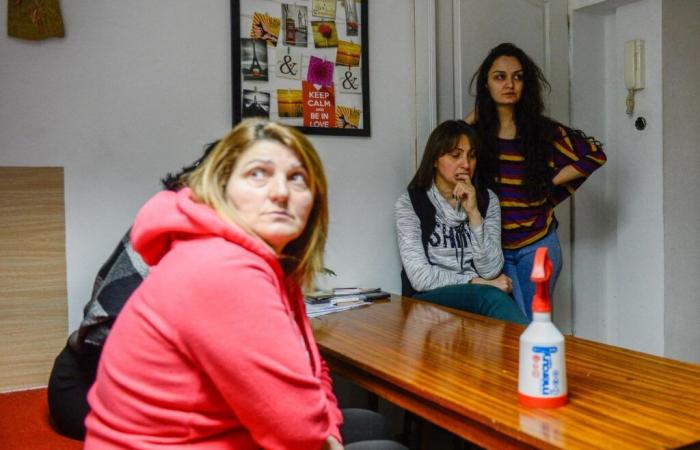It took the courage of a gastronomic critic not to be moved when biting into Aleksandre's khinkalis. This young chef from Tbilisi, the Georgian capital, revisited these traditional ravioli in his own way, topped with a garlic sauce. During our last meeting, he still confided his dream: to open a restaurant in Lyon, “world capital of gastronomy” according to him, where a good Georgian would not be too much.
Recently, Aleksandre's phone has been ringing. Messages no longer even arrive on WhatsApp messaging. His former boss warns that he left his SIM card behind when he left Georgia. He felt he didn't earn enough and that his talent didn't get the recognition it deserved here. We will not know if he has indeed taken the path to France, nor if he will introduce his khinkalis with garlic sauce there.
Victory of the Georgian Dream
This type of departure is common in Georgia. At any moment, a friend can disappear into the anonymity of emigration. With 3.7 million inhabitants today, the country is the one in enlarged Europe which has proportionally lost the most population since the fall of the USSR in 1991: at least a third in just over thirty years. . Neither Ukraine, invaded by Russia, nor Greece ruined by the 2008 crisis has experienced such a hemorrhage. And the victory in the legislative elections, at the end of October, of the Georgian Dream, the party in power for twelve years, should accentuate the phenomenon.
The government's deemed illiberal drift is pushing new candidates into exile: activists, LGBT+ people and, in general, those who no longer see any prospect of change. This is the case of Meriko Kajaia, 31, who is waiting for departure from an old building in Tbilisi. His visa to the Netherlands is due to arrive any minute in the next 90 days, he was told. A refugee from Abkhazia, a separatist territory controlled by the Russian army since 1992, she cannot imagine staying “in a Georgia which is gradually becoming Russia”.
The young woman is head of growth (in charge of growth) of an SME and is one of the privileged people who can be hired in Europe without too much difficulty. Experts speak of a brain drain. “But don’t think that there are only people like me, she warns. In the village where I grew up and throughout Mingrelia (northwest region)there is no longer a woman of my generation. We all left. »
Immigration clandestine
Unlike other former Soviet republics, emigration continued in Georgia after the economic slump of the 1990s. Between 2010 and 2020, a quarter of Georgians left. “There has been a peak for two or three years, driven by the lack of prospects, says Lars Johan Lönnback, head of mission of the International Organization for Migration (IOM) in Tbilisi. We see more and more children leaving. And since 2023, women have been in the majority. »
The UN agency refuses to talk politics. There is, however, little doubt about the effect that the reforms led by Georgian Dream will have. The European Union, which had granted Georgia candidate status in 2023, has frozen the integration process. Brussels could be tempted to review its relations with Tbilisi and its visa regime, liberalized in 2017. Emigration would then become clandestine.
Since Georgia is considered a “safe country” in France, asylum requests are most often refused and end with an OQTF and deportation. Other, more perilous routes have appeared, notably via the Mexican border. A relative tells the story of Zurab (first name changed), police officer from the Ozurgeti region, arrested in 2024 by the American police. He had taken his uniform with him to show it in case of arrest. After months of detention, he is now in New York. Nearly 100,000 other Georgians live there, according to a lawyer who handles these cases. Zurab hopes to become a taxi driver.






